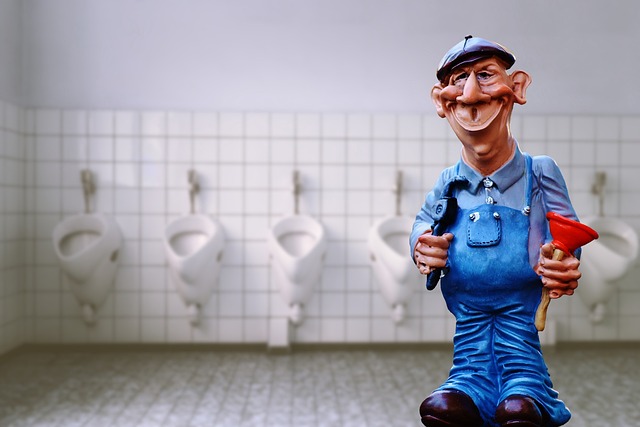When facing plumbing issues, understanding the task's scope is crucial (DIY vs. Professional Plumbing). Simple tasks like unclogging drains or fixing faucets can be done by homeowners with basic tools and knowledge. However, complex jobs such as sewer line replacements, pipe relining, or major fixture installations require specialized skills and equipment, best handled by professionals to avoid further damage, costly repairs, or health hazards. For significant or uncertain problems, consulting a professional plumber ensures accurate assessment and reliable, long-lasting solutions.
“Confused about tackling that leaky faucet or clogged drain? DIY enthusiasts often weigh the benefits of fixing plumbing issues themselves against hiring a professional. This article guides you through the decision-making process, offering insights on DIY-friendly tasks and signs to recognize when it’s time to call the pros. From understanding minor vs. major repairs to considering your budget, time, and comfort level, plus expert safety tips, learn when to embrace DIY plumbing or trust a licensed plumber for the job.”
- Assess the Plumbing Issue
- – Understanding the problem: minor vs. major repairs
- – Identifying DIY-friendly plumbing tasks
Assess the Plumbing Issue

When deciding between DIY and calling a professional plumber, the first step is to assess the plumbing issue at hand. Simple, minor problems like clearing a clogged drain or fixing a leaky faucet can often be tackled by homeowners with some basic tools and knowledge. These tasks typically involve straightforward repairs that don’t require specialized skills or equipment. On the other hand, complex issues such as sewer line replacements, pipe relining, or major fixture installations should usually be left to professionals.
Professional plumbers are equipped with the right tools, expertise, and experience to handle these more intricate jobs safely and effectively. Attempting to fix such problems yourself can lead to further damage, costly repairs, or even health hazards. DIY plumbing may save money on minor tasks, but for significant or potentially dangerous issues, it’s generally best to call a pro for reliable and long-lasting solutions.
– Understanding the problem: minor vs. major repairs

When considering whether to tackle a plumbing issue yourself or call in the professionals, understanding the problem at hand is key. Plumbers face a wide range of challenges, from minor repairs to major crises. Minor issues might include leaky faucets, slow drains, or low water pressure, which can often be resolved using simple DIY methods. These tasks usually involve straightforward fixes like replacing washers, unclogging pipes with household products, or adjusting valves.
On the other hand, major plumbing problems such as pipe bursts, severe clogs, or extensive leaks demand more complex solutions. These situations may require specialized tools and knowledge to repair without causing further damage. For instance, a burst pipe could lead to significant water damage and structural issues, making it crucial to consult a professional plumber who can assess the extent of the problem and provide lasting repairs.
– Identifying DIY-friendly plumbing tasks

Plumbing issues can range from simple to complex, and knowing which ones to tackle yourself or leave to professionals is key when considering DIY vs. professional plumbing. Many basic tasks can be done by homeowners with some know-how and the right tools. This includes unclogging drains using a plumber’s snake, fixing leaky faucets, replacing toilet flappers, and installing or repairing showerheads. These are relatively straightforward jobs that often only require a few common household items.
When it comes to DIY plumbing, it’s essential to assess your skill level and comfort with handling tools. If you’re confident in your abilities and willing to learn, many online resources offer step-by-step guides for various DIY projects. However, for more intricate or potentially hazardous tasks like repiping, repairing severe leaks, or dealing with complex toilet or water heater issues, it’s usually best to call the pros. These jobs demand specialized tools and expertise, ensuring a safe and effective fix.
When deciding between DIY plumbing fixes and calling in the pros, assessing the scope of the issue is key. While some minor problems can be tackled with basic tools and knowledge, major repairs often require specialized skills and equipment. Understanding the difference between these two categories allows you to make an informed decision. For simple, well-defined tasks like replacing a faucet or unclogging a drain, DIY methods can save time and money. However, for complex issues like pipe replacements, water leakage detection, or gas line repairs, it’s best to trust a professional plumber to ensure the job is done safely and effectively, preventing further damage and potential hazards. Knowing when to call the pros can prevent costly mistakes and maintain your home’s plumbing system in top condition.
